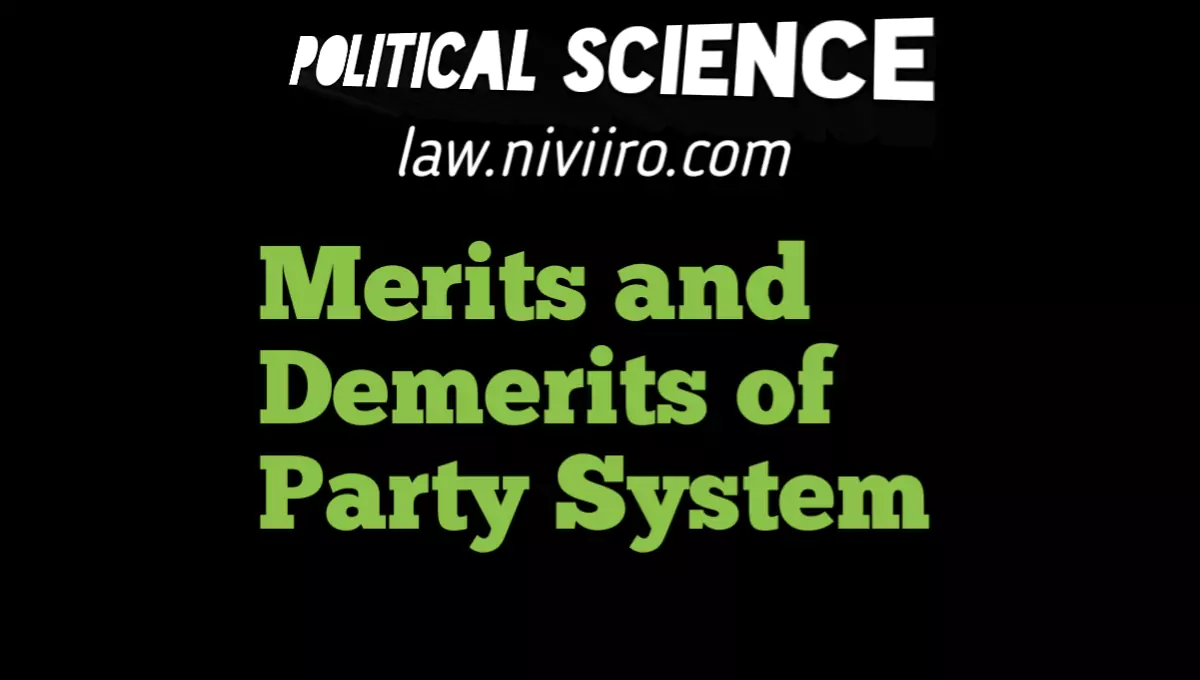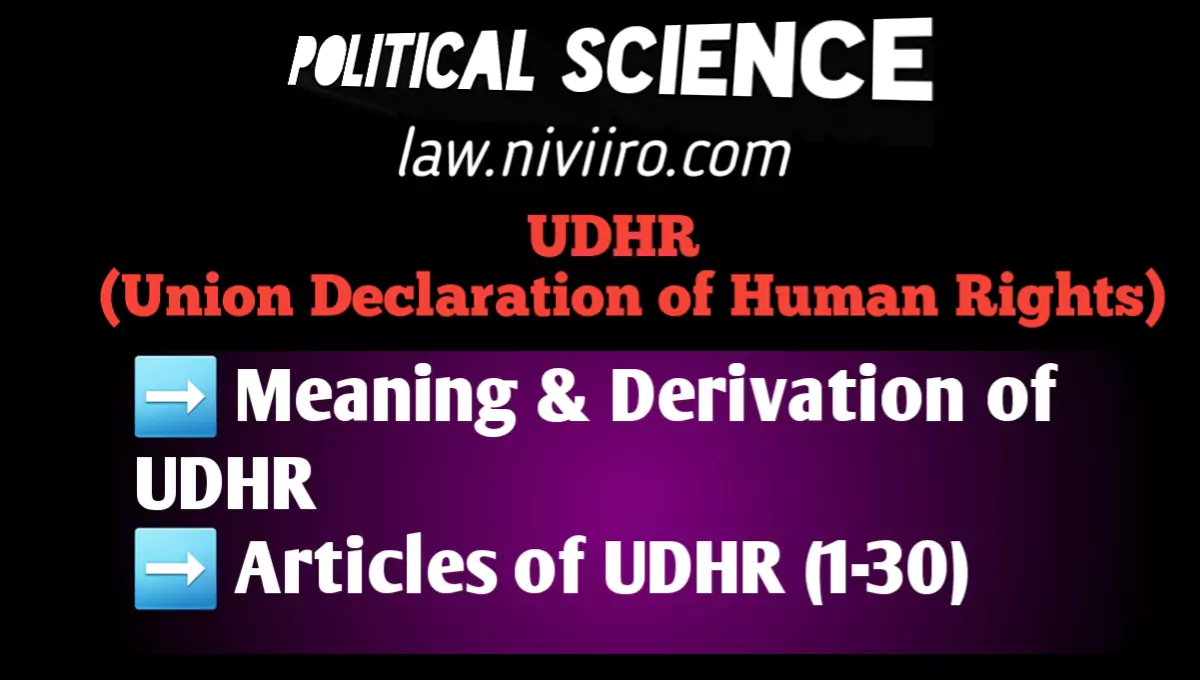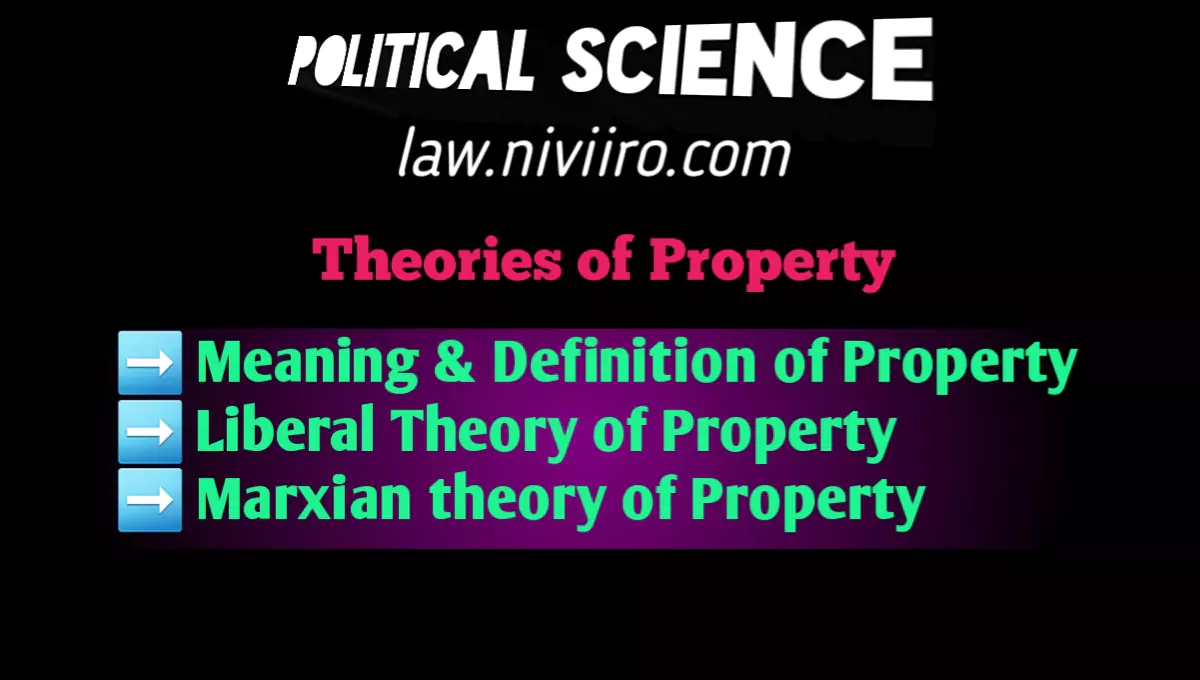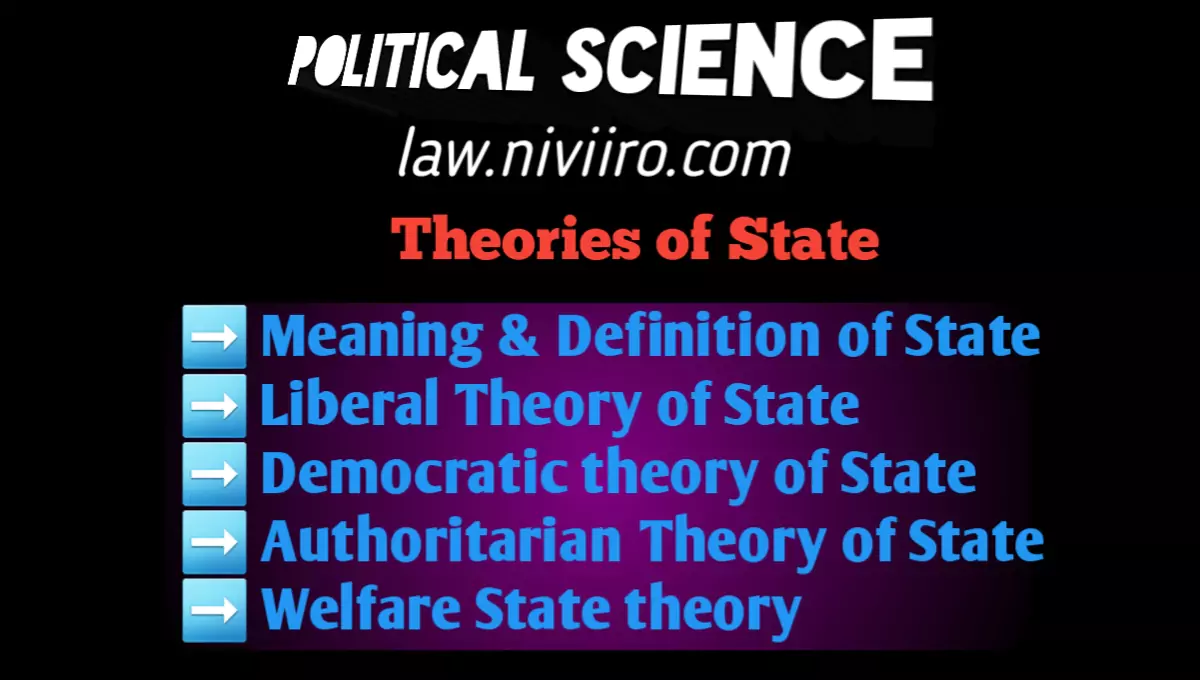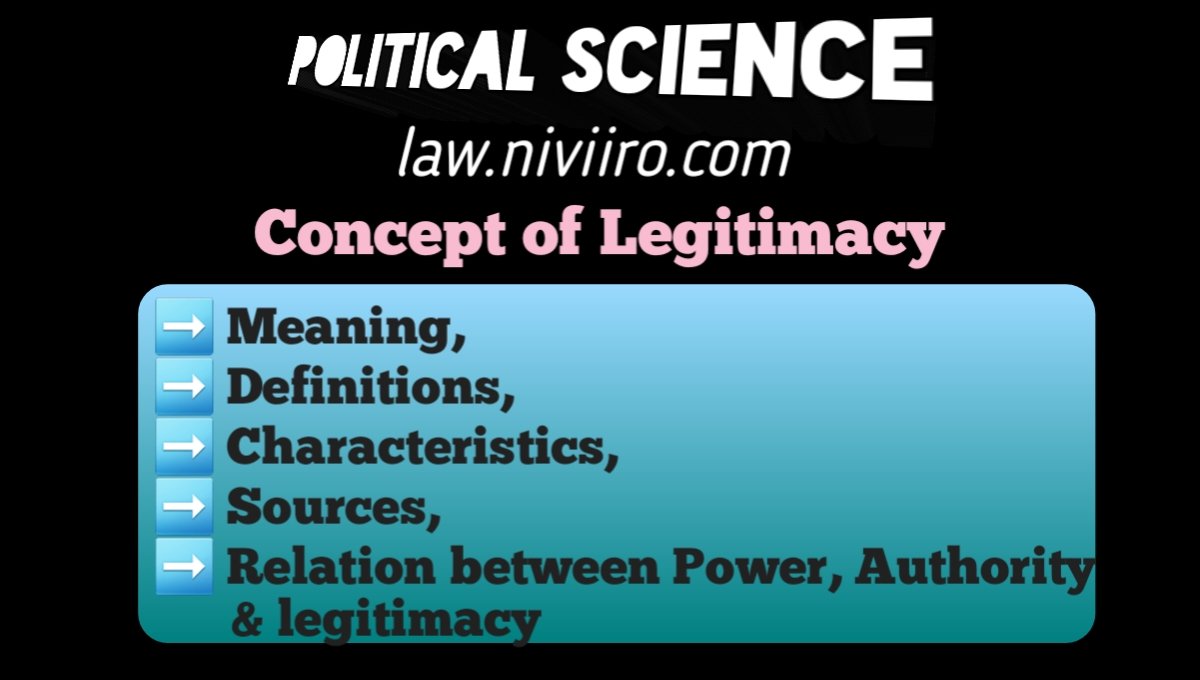Followings are the Merits and Demerits of Party System :
Merits of Party System
All the functions of political parties are in fact indispensable functions and can be stated as their merits. However, the following can be described as the main merits:
1. Political Parties are based on Human Nature
There is difference in human views, just as there is diversity in nature. As a result, it is critical that diversity be expressed through many political parties. Some people identify as liberals, while others identify as conservatives. As a result, all of these divergent viewpoints are voiced through political parties.
2. Very useful and essential role in formation of Public opinion and Public Policies
Political parties formulate public opinion. Every adult has the right to vote in a democracy. At the time of the election, every citizen is required to declare his or her view. They present the people with clear alternatives. Citizens organise around several political parties, and public opinion is therefore organised into distinct channels.
Political parties, in this fashion, provide an effective forum for the organised expression of opinions on critical issues of public policy. “In democracies, they provide the organisation through which policies are created and political propaganda is carried on for the purpose of forming and influencing public opinion,” Gettel writes.
3. Political parties promote national unity
Parties have played an important role in fostering and preserving a sense of national unity. In some political systems, the people do not form a homogeneous unit. There are differences in religion, national background, and economic interest. Political parties bring order and coherence to the diversity since diverse people join each party. Political parties are to blame for the state’s transformation into a welfare state.
4. Essential Instruments of Democratic System
Demoeracy, as Finer observes, “rests, in its hopes and doubts, upon the party system. It is the political pivot point.” Democracy cannot succeed unless political parties exist. The reason for this is that political parties instil in people a sense of organisation and discipline. Following the elections, each party elects its leader, making it easier for the President to invite the majority party’s leader to form the government.
5. Political parties provide political education
Political parties compete in elections by publishing election manifestos and other related literature in which they attempt to communicate their point of view. In public meetings, they promote their policies and criticise rival parties. Following the election, a similar course of action is taken. People acquire tremendous political education as a result of this, since they learn about the advantages and disadvantages of each party, as well as the different difficulties confronting the country.
6. Means of Harmonising the Organs of Government
Political parties are means to bring about a sort of co-ordination in the working of different organs of the government. They have fulfilled this role in the United States of America, where the government is founded on the principle of Separation of Powers. They serve as a bringing force. It ensures continuous policy and administration continuity. The executive and legislature work together to create a cohesive policy.
7. Parties keep the government in check
The party system also acts as a great check against domination. The parties hold the wheels of tate in balance. According to Lowell, “The parties enable the people to hold the government in check. The constant presence of a recognized opposition, with a programme fairly within the limits of a possible public opinion is a bulwark against the tyranny, not only of a despot but also of a practical majority.”
8. Link between the government and the people
Political parties serve as crucial communication channels between the people and the government. They serve as two-way agencies, bringing people’s demands to the government and the government’s policies to the people. The government and opposition parties keep in constant and close contact with the people.
The opposition parties present the government with the people’s problems and desires. The ruling party must also contest elections in a short period of time and must receive public support. As a result, it does its best to solve people’s problems for their benefit and in conformity with public sentiment.
9. Easier Government Formation
The party system makes government formation easier because the head of state must determine which party has a majority in the legislature.
10. Political parties transform the mass of electorate into a national force
The parties’, says Bryce, “keep a nation’s mind active, as the use and fall of the sweeping tide freshens the water of long ocean inlets.” Discussions inside each party, culminating in the adoption of a platform before the election, bring specific concerns to the forefront, define them, express the informulas that fix men’s minds on certain areas, focusing attention and attracting criticism.
Thus, it forces individuals to think deliberately and steadily about any matter that is not directly related to their own financial interests; otherwise, public opinion would be hazy and ineffective if the party searchlights were not continually turned on it.
Demerits of Party System
Along with having a large number of merits, the parties have demerits also. These are the following
1. Demoralize Public Opinion
Political parties demoralise public opinion by deceptive propaganda and incorrect factual statements. Every political party employs every tool at its disposal to sway public opinion in its favour. Political parties defend their own agendas while criticising rival parties. Naturally, public opinion becomes perplexed and demoralised. They rely on emotion rather than logic. They use flags, emblems, and slogans to make their case. They make their case in the name of individuals and personalities rather than ideals and policies.
2. Selfish propaganda harms national interests by ignoring the interests of the country–
Every party engages in many forms of propaganda, both for and against other parties. It poisons the country’s political climate. Each party is more concerned with itself than with the country. As a result, it is detrimental to the country.
3. Wrong education of the People
The critics of the party system say that the people do not get education in this system. On the country, many misunderstandings are created among the people. The political parties try to get votes by false promises and propaganda, under pressure and cheap tactics
4. Source of divisions among a Nation
Parties divides not only the legislature but the nation into hostile camps. During national emergencies like economic crisis or foreign aggression, parties can hardl transcend their petty differences and present a united front. Thus party system creates factionalism in the country. Dr. Gilchrist says, “Party system tends to make the political life of a country machinelike or artificial. The party in opposition or as it is sometimes called the Outs is always antagonistic to the party in power or the Ins.””
5. Local Biases
Parties cause bias, and every voter is more or less drawn or repelled to such an extent that he is unable to form a totally unbiased judgement on policy issues or candidate merits. parties Under this system, the continual struggle of the Ins and Outs for political power transforms the legislative into a battleground; and in this struggle, the legislature becomes a battlefield.
6. Principles are subordinated to Success
Parties tend to become autonomous and regard organisations as important for their own sake. Principles are, thus, subordinated to success at the polls; victory becomes the first commandment. Issues are considered not on their merits. Everything is said and done with an eye to success in the elections. The representatives submit themselves to party discipline; and the members follow the party line like automatons. Freedom of speech or independent thought, which is the fulerum of democracy, withers, in the normal weather of politics.
7.Agencies of Corruption
During election parties distribute money among the electorate and use many cheap tactics to secure votes. Persons with a special influence over voters aid in obtaining a necessary number of votes. Candidates make various promises and present numerous temptations. Candidates that win elections help their followers in a variety of ways. The ruling party will occasionally offer such people high-level positions.
8. Political Parties stifle Individuality
Political parties stifle independent thought. Every political party has its own strict discipline. Each party expects the public to blindly follow it. It forbids even its own employees from criticising it for flaws. It crushes their individuality and stifles their development.
9. Increase the Role of Money in Politics
In large industrial countries, party members are occasionally bought off by industrial magnates and businesses, resulting in what has been dubbed the “invisible government of the affluent” via the parties.
10. Parties are a cause of inefficiency and delay
Under the party system in politics, all decisions are made along party lines rather than in the best interests of the country. The majority party is always eager to elevate itself above the nation. Other parties or the opposition party are constantly working to check and obstruct the majority party’s decisions, activities, and programmes, regardless of whether they are appropriate or inappropriate for the growth of society. The basic evil of the party system is aggressive and damaging party politics.
11. Political parties spread communal enmity
Parties created on religious grounds spread community hatred towards other communities. It causes several confrontations around the country.
12.Provide Possibilities to Low-Level Individuals
Political parties merely provide opportunities to political ringleaders, demagogues, careerists, and political explorers. Really intelligent people have virtually limited chance of success in politics. A political leader is someone who understands the art of public speaking and has a flair for accumulating suffrage in his favour. Men in the arts, sciences, and writing are often election-averse. They avert their gaze from the shady game of politics. Under the party system, nepotism, jobbery, and the spoils system thrive. Elections are dominated by casteism, provincialism, linguism, and communalism.
Conclusion | Merits and Demerits of Party System
Political parties have their merits as well as demerits. By conscious efforts and through institutional and other structural arrangements we can certainly minimise, if not totally eliminate these demerits. Parties are in dispensable. To conclude we can say that no free and civilised country has been or can be without political parties.
Related Post
References
- Prof. H.C. Verma, Modern Political Theory
- M.P. Jain, Political Theory liberal and Marxiam
- R.C. Agarwal, Political Theory
- Prof. S.L. Verma, Modern Political Theory
- Foundations of Political Science, Dr. Sunita Gangwal
- J.C. Johari, Political Science
- V.D. Mahajan, Political Theory













